How To Find the Right Revenue Cycle Management Partner
In-house RCM can be inefficient and costly due to the complexities of billing, coding, and compliance. And your practice may struggle to keep up with changing regulations, leading to more errors and, eventually, revenue loss.
Outsourcing RCM to a specialized partner can address these challenges by offering expertise, technology, and best practices.
But how do you zero in on the right match for your practice? Here are 10 things to look for.
What To Look For in An RCM Company
When you’re looking for an RCM partner, there are a few key things to keep in mind:
Customized Strategy
The best RCM partners will develop a strategy that suits your specific needs. They should be able to adapt their model as your practice grows and navigate the nuances of your current system to suggest improvements or work within its limitations.
The goal is to ensure their RCM model integrates seamlessly with your systems and provides the necessary training for your staff.
Trust & Transparency
Trust is important because you will essentially allow an RCM partner access to sensitive financial records.
Find a partner who can provide real-time data to help you spot trends and potential issues. Transparency also means clarity. Your RCM partner should present data in an easy-to-understand format without overwhelming you with complex jargon.
Understanding of the Marketplace
The healthcare industry is constantly evolving, with regulations, payment models, and technology changes.
Your RCM partner should deeply understand the current market trends and be proactive in adapting to these changes. They should be well-versed in the latest billing codes, compliance requirements, and payer policies to ensure your practice stays ahead of the curve.
Denial Management Strategy
Denials are a significant obstacle to revenue optimization.
An effective RCM partner should have a robust denial management strategy that includes identifying the root causes of denials, implementing preventive measures, and efficiently resolving denied claims. They should use data to track denial patterns and provide insights on improving your billing processes.
Return on Investment
The ultimate goal of partnering with an RCM provider is to improve your bottom line.
Your RCM partner should demonstrate a clear return on investment by increasing your collections, reducing your denial rates, and streamlining your billing processes. They should provide regular performance reports that highlight the financial impact of their services on your practice.
Technology
Advanced technology solutions offered by the RCM partner can streamline billing, coding, and claims processing.
Your RCM partner should utilize advanced technology, such as automated billing systems, electronic health records (EHR) integration, and data analytics tools. These technologies should enhance the efficiency of your RCM processes, reduce manual errors, and provide actionable insights into your financial performance.
Data Security and Compliance
Patient data security and regulatory compliance are non-negotiable in healthcare.
Your RCM partner should adhere to stringent security protocols like encryption, access controls, and regular audits. They should also ensure compliance with all relevant regulations, including HIPAA, to protect patient information and avoid legal and financial penalties.
Pricing and Contract Terms
Pricing transparency is another no-bargain aspect. Your RCM partner should provide a clear breakdown of their fees and any additional charges.
The contract terms should be flexible, allowing for adjustments in service levels based on the changing needs of your practice. It’s important to have a clear understanding of the contract terms, including termination clauses and performance guarantees.
Customer Support and Training
Your RCM partner should offer comprehensive training for your staff, covering not only the use of the RCM system but also best practices in coding and documentation quality.
They should also provide ongoing support, with multiple channels for communication and quick response times to ensure your team is equipped to handle the intricacies of revenue cycle management.
Scalability and Flexibility
As your practice grows, your RCM needs will evolve. Your RCM partner should offer scalable solutions that can accommodate increases in patient volume and billing complexity. They should be flexible in their approach, allowing for customization of services if and when required.
Performance Metrics and Reporting
Access to detailed performance metrics is crucial for monitoring the effectiveness of your RCM processes.
Your RCM partner should provide regular reports highlighting key performance indicators (KPIs), such as collection rates, denial rates, and days in accounts receivable (A/R). These metrics should be used to track progress, identify trends, and make data-driven decisions to improve your revenue cycle.
Reputation and Client References
Check their references and speak to their current or past clients to gauge their satisfaction with the services.
Look for an RCM partner with a positive industry reputation and a history of delivering results for healthcare practices similar to yours.
Conclusion
While in-house RCM offers control, the complexities and costs may outweigh the benefits. Outsourcing to a reputable partner can provide numerous advantages, including efficiency, cost savings, and compliance.
Thinking of making the switch? Check out medetec to see how we can help keep your finances on track.


